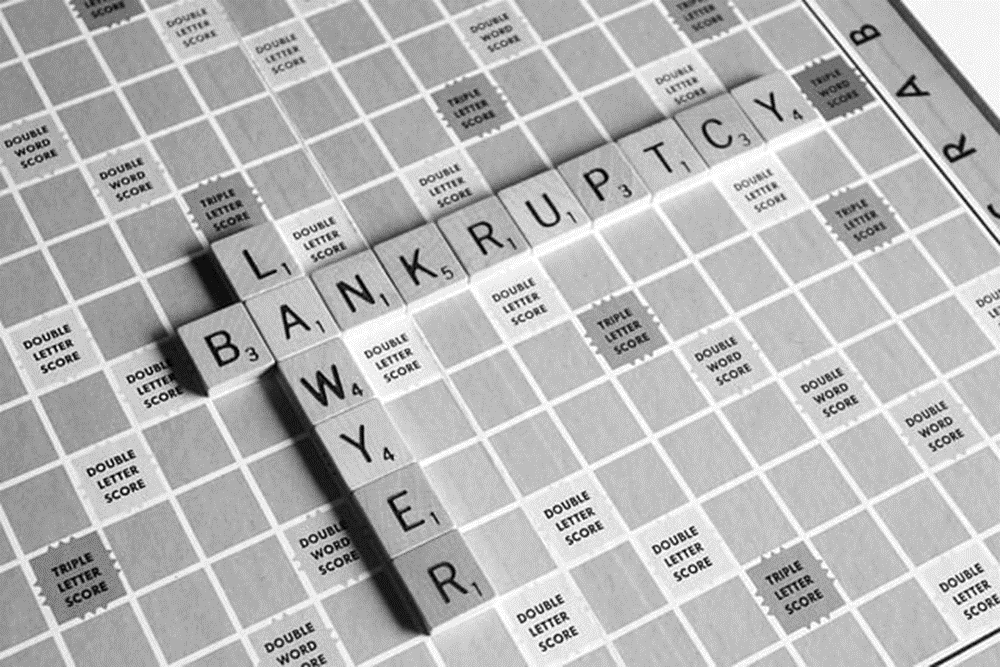Blog

Can I Sell My Car After Filing Bankruptcy in Georgia?
Bankruptcy | July 24, 2024 | Christopher Ross Morgan
Yes, You Can Sell Your Car After Filing Bankruptcy in Georgia (But There’s a Catch)
Georgia’s bankruptcy exemptions allow you to sell your car after filing, but whether you keep the proceeds depends on your car’s value and the exemptions used.
Bankruptcy and Your Vehicle
Filing for bankruptcy in Georgia involves many decisions and considerations. One of the most pressing concerns for many debtors is the fate of their car. Cars are essential for daily life, from commuting to work to running errands, so understanding how bankruptcy affects your vehicle is crucial.
One of the first steps is to get an answer to the question: Can I sell my car after filing bankruptcy in Georgia? An Athens, GA bankruptcy attorney will explain the law and implications of dealing with different assets during your case. However, an overview is useful for exploring various aspects of US bankruptcy law.
Always Losing Property in Bankruptcy is a Common Myth
Many people believe that filing for bankruptcy means losing all their valuable property, including their car. However, this is a common myth. Chapter 7 and Chapter 13 laws, both federal and in Georgia, provide bankruptcy protection that allows debtors to keep certain exempt property.
The Georgia bankruptcy exemptions can protect your vehicle up to a designated value, meaning you may not have to part with it. A firm grasp of these exemptions and how they apply to your situation is essential to determining if your car can be safeguarded during the bankruptcy process.
Role of the Bankruptcy Trustee
When you file for bankruptcy, a bankruptcy trustee is appointed to oversee your case. The trustee’s role is to ensure that secured and unsecured creditors are treated fairly and that your bankruptcy case is administered according to the law.
In Chapter 7 bankruptcy, the trustee may sell non-exempt assets to pay creditors, but many debtors can keep their car through proper strategy and planning. This is because there is a bankruptcy exemption for your vehicle. Under Chapter 13 bankruptcy, the trustee works with you to develop a repayment plan over three to five years, and you can usually keep your car as long as you continue making payments.
The trustee also reviews any sales of assets, including cars, to ensure that they are conducted fairly and in the best interest of your creditors. If you wish to sell your car after filing for bankruptcy, you need the trustee’s approval.
How to Keep Your Car if You File Bankruptcy in Georgia
There are strategies that may enable you to keep your vehicle depending upon the type of bankruptcy you file, a decision that you need to make when filing your bankruptcy petition.
How to Keep Your Car if You File Chapter 7 Bankruptcy in Georgia
In Chapter 7 bankruptcy, Georgia’s exemptions are crucial in determining whether you can keep your car. Georgia exempts up to $5,000 of equity in your vehicle. If your car’s equity is within this limit, you can likely retain it by:
- Reaffirming your car loan
- Continuing to make your monthly payment on the vehicle
- Redeeming the car by paying its current market value in a lump sum.
However, the trustee may decide to sell the car if the equity exceeds the exemption limit and you still owe money. You will receive the exemption amount, but the remainder is used to pay off creditors. Assessing the fair market value of your vehicle and the exemptions available is essential to protect your car in Chapter 7 bankruptcy.
How to Keep Your Car if You File Chapter 13 Bankruptcy in Georgia
With a Chapter 13 bankruptcy case, you create a repayment plan to pay back your debts over three to five years. This type of bankruptcy relief allows more flexibility to keep your car. You can include your car loan in the repayment plan and catch up on missed payments over time.
Additionally, if your car loan interest rate is high, you might be able to negotiate a lower rate through the bankruptcy plan, reducing your overall monthly payments. As long as you adhere to the payment plan approved by the bankruptcy court, you can keep your vehicle.
Sales of Vehicles After Filing Bankruptcy in Georgia
Selling your car after filing for bankruptcy in Georgia is possible, but it involves several steps and considerations.
- You need to inform the bankruptcy trustee and get their approval before proceeding with the sale.
- The trustee will evaluate whether the sale is in the best interest of your creditors and that the car is being sold for its fair market value.
- Once approved, the proceeds from the sale must be used to benefit your creditors.
- If the car is exempt, you may keep the proceeds up to the exemption limit. If the car is not exempt, the trustee will distribute the proceeds according to the bankruptcy code.
It is crucial to consult with a knowledgeable bankruptcy lawyer before selling any assets during bankruptcy to ensure compliance with all legal requirements and to protect your interests.
Reaffirming Your Car Loan
Reaffirmation is an agreement made between you and your car loan lender to continue paying the car loan despite the bankruptcy. This can be beneficial if you want to keep your car and can afford the payments. Reaffirming your car loan means you agree to remain liable for the debt even after the bankruptcy discharge.
This agreement must be approved by the bankruptcy court, ensuring that it does not impose an undue hardship on you. Reaffirmation can help you maintain your car, improve your credit score post-bankruptcy, and provide stability as you rebuild your financial life.
Opting to Give Up Your Car in Bankruptcy
Deciding whether to give up your car in bankruptcy depends on your financial situation and the car’s value. If the car payments are too high or the vehicle is worth less than the loan balance, surrendering the car might be a sensible choice. In such cases, you can include the deficiency balance (the amount owed after the car is sold) as part of your bankruptcy discharge in federal court.
Conversely, if you rely heavily on your car for daily activities and can manage the payments, keeping the car through reaffirmation or exemption might be the best option. Speak with a bankruptcy lawyer for help weighing the pros and cons based on your specific circumstances.
Key Insights
Filing for bankruptcy in Georgia does not necessarily mean losing your car. You can make informed decisions about your vehicle by understanding the exemptions, the role of the bankruptcy trustee, and the legal proceedings involved. Whether you decide to keep your car, sell it, or surrender it, the key is to work through the bankruptcy process with the guidance of a knowledgeable attorney who will protect your interests and achieve the best possible outcome for your financial future.
Start the Journey to a Solid Financial Future Today
At Morgan & Morgan Attorneys at Law P.C., we understand that filing for bankruptcy can be a challenging and stressful experience. Our experienced bankruptcy lawyers in Athens, GA, are here to help you navigate the process and protect your assets, including your car. Don’t face this difficult time alone. Take the first step towards a fresh financial start and regain control of your life.
Please contact us today for a free consultation to discuss your options. Morgan & Morgan Attorneys at Law P.C., will evaluate ways we can help you keep your car and other valuable assets. You can call us at (706) 468-3234 or visit us online to schedule your appointment. The team of dedicated bankruptcy attorneys at will be your trusted partner in achieving financial stability.
Questions and Answers About Bankruptcy in Georgia
Does bankruptcy clear car payments?
Filing for bankruptcy can discharge certain debts, but whether it clears car payments depends on the type of bankruptcy and your specific situation. There are also important considerations regarding the nature of the debt and unsecured versus secured creditors.
In Chapter 7 bankruptcy, if you surrender your car, the remaining balance on the car loan can be discharged, relieving you of further car payments. However, you must continue making car payments if you choose to keep your car through reaffirmation or redemption. In Chapter 13 bankruptcy, your car loan can be included in the repayment plan, allowing you to catch up on missed payments over three to five years.
How long after bankruptcy can I buy a house in Georgia?
After filing for bankruptcy in Georgia, the timeframe to buy a house varies based on the type of bankruptcy filed. For Chapter 7 bankruptcy, it typically takes about 2-4 years after discharge to qualify for a mortgage, depending on the lender’s requirements. For Chapter 13 bankruptcy, you may be able to obtain a mortgage one year into your repayment plan with court approval and lender consent. Building good credit and demonstrating financial stability are key factors in purchasing a house post-bankruptcy.
Can I sell my car during Chapter 7 bankruptcy?
Selling your car during Chapter 7 bankruptcy requires approval from the bankruptcy trustee and the bankruptcy court. The trustee must ensure that the sale benefits your creditors and that the car is sold for fair market value. You must report any sales and use the proceeds to pay off debts as the bankruptcy code requires.
Can I sell my car after my Chapter 7 has been discharged?
Once your Chapter 7 bankruptcy case has been discharged and closed, you can sell your car without the need for trustee approval. However, ensure that the sale complies with any legal restrictions and consult your attorney to confirm there are no outstanding obligations related to the car loan or bankruptcy.
Can you sell assets after bankruptcies?
Yes, you can sell assets after your bankruptcy case has been discharged and closed. During an active bankruptcy case, selling assets requires court and trustee approval. Post-discharge, you regain control over your assets, but it’s essential to follow any remaining legal obligations. Consult your bankruptcy attorney to ensure compliance with all legal requirements before selling any assets.
Protect Your Assets with Expert Legal Guidance
Are you worried about losing your car or other assets after filing for bankruptcy in Georgia? Morgan & Morgan Attorneys at Law P.C. is here to provide you with the expert legal guidance you need. Our dedicated team of bankruptcy lawyers in Athens, GA, will work tirelessly to protect your rights and help you navigate the complexities of the bankruptcy process.
Don’t wait any longer to secure your financial future. Reach out to us for a free consultation and let us help you understand your options and make informed decisions. Call us now at (706) 468-3234 or visit our Contact Us page to get started. Trust Morgan & Morgan Attorneys at Law P.C. to guide you through this challenging time and towards a brighter financial future.
Related Content: Can I Keep My Car When Filing for Bankruptcy?

Christopher Ross Morgan
Christopher Ross Morgan focuses on bankruptcy cases, specifically Chapter 7 and Chapter 13 cases. Christopher also takes on Disability and Workers’ Compensation cases. As one of the most accomplished Chapter 7 and Chapter 13 attorneys in Athens, Georgia, he has fought cases through jury trials and argued cases in front of the U.S. District Court, Northern and Middle District of Georgia.
SHARE
RELATED POSTS
What’s the Difference Between Chapter 7 vs Chapter 13 Bankruptcy in Georgia?
Filing for bankruptcy can feel overwhelming, especially when trying to understand your options. You might be asking: What’s the difference between Chapter 7 vs Chapter 13 bankruptcy? The main difference between Chapter 7 and Chapter…
Selling Your Home During or After Bankruptcy In Georgia
Your Home and Bankruptcy in a Nutshell Considering selling your home can be a complex decision, especially if you’re simultaneously facing financial difficulties and contemplating bankruptcy in Georgia. Specifically: If you’re in Chapter 13, court…








